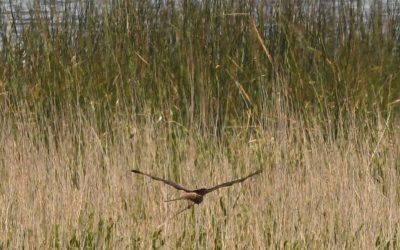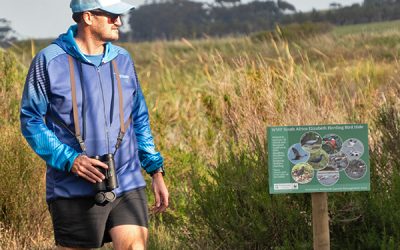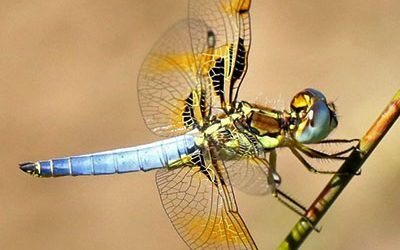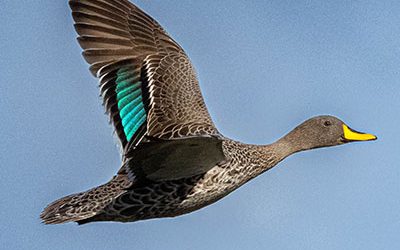Water gives us life.
At the southern tip of Africa, people and wildlife depend on an intricate water network.
The Nuwejaars wetlands, and the rivers and underground water arteries that feed them, are at the heart of this network.
A group of worried landowners and Agulhas Plain residents in South Africa saw how these wetlands started disappearing. And how nature and people suffered.
And so we formed the Nuwejaars Wetlands Special Management Area.
Today we have 25 landowners, and the town of Elim, working together over 46,000 hectares in the Plain, to protect our water systems, and the biodiversity-rich landscapes all around them. The Nuwejaars Wetlands Special Management Area (or SMA) is a new way of protecting nature and all its complex ecosystems on private land in the Overberg municipal region.
It’s a conservation model new to South Africa.
We’ve committed to conservation and sustainable farming by signing title deed restrictions. That means that we’ll forever protect this biodiversity hotspot, while still supporting food security in South Africa through our sustainable farming. While we’ve tested the model here in the Overberg, it’s now being replicated in other parts of South Africa – with wonderful success.

CONSERVE
EDUCATE
INSPIRE
You’ve got to see this area for yourself.
If you love the outdoors, the Nuwejaars Wetlands Special Management Area offers a natural world you won’t see anywhere else. It’s a paradise for birders, with the Agulhas Plains birding project identifying 235 species. There are a range of places to overnight – from more rustic and private accommodation, to luxurious homes and cottages. The Nuwejaars Wetlands members include wineries in the Agulhas Wine Triangle.

Our Nuwejaars Wetlands Wildlife Guided Tours
Join our Nuwejaars Wetlands Wildlife Guided Tours, close to Africa’s southernmost tip – the ONLY tours in the Overberg to provide wildlife experiences with big game like Buffalo and Hippo.
You’ll head into a secret wetland and lake expanse, where game, birds and flora flourish. This photographic tour is on private land – and is not otherwise open to the public. The Nuwejaars Wetlands SMA is one of the largest private conservation ventures in the district, sharing a border with the Agulhas National Park.
The Wildlife Guided Tours are led by a trained guide. (And be sure to bring your camera, binoculars, walking shoes, and maybe your jacket, just in case.)
Tours OPEN for summer
Morning Wildlife Tour
(R450/person, and R200 for children aged 12 and under; toddlers free)
Meet at the Black Oystercatcher at 8.30am, for a 3-hour trip through the Nuwejaars Wetlands SMA, including coffee and rusks – overseen by our trained guide.
Sunset Wildlife Tour
(R500/person, and R200 for children aged 12 and under; toddlers free)
Meet at the Black Oystercatcher at 5pm, for a 3-hour trip to a lovely, secretive lake, including sundowners at this sunset viewpoint. Hippos live in this lake, and could pop by for a visit (this trip is overseen by our trained guide).
Booking is essential
book@nuwejaars.com
076 833 6341
Why is the Agulhas Plain so important?

The Cape Floral Kingdom covers much of the landscape around the Nuwejaars wetlands and rivers.
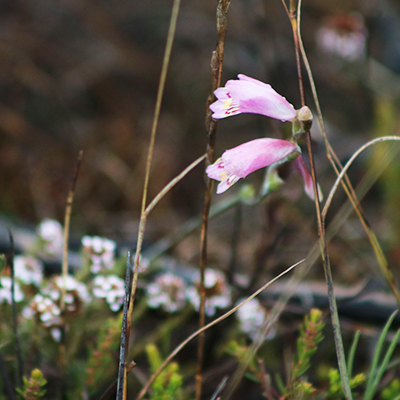

Highly threatened lowland fynbos grows here – home to plant species found nowhere else in the world.
This critical habitat also gives life to globally threatened birds. Birds like the Southern Black Korhaan, Secretarybird and Hottentot Buttonquail thrive here.



That’s why the Nuwejaars Wetlands Special Management Area forms part of an Important Bird and Biodiversity Area.

The Special Management Area is the original home of the Bontebok – once nearly extinct. Now we’ve brought them back.

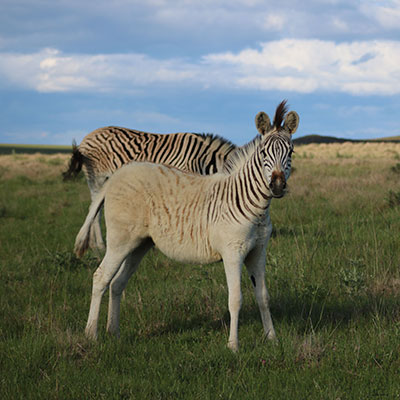
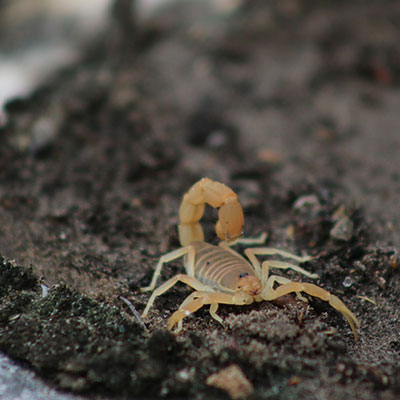


And we’ve reintroduced Buffalo, Hippo and Hartebeest – once extinct on the Agulhas Plain.
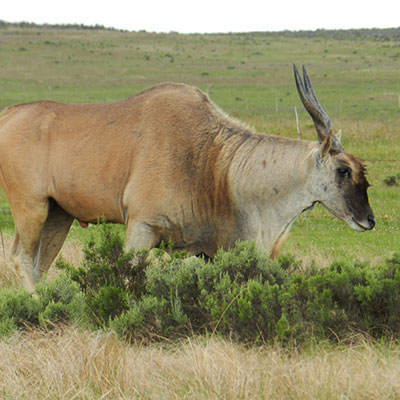
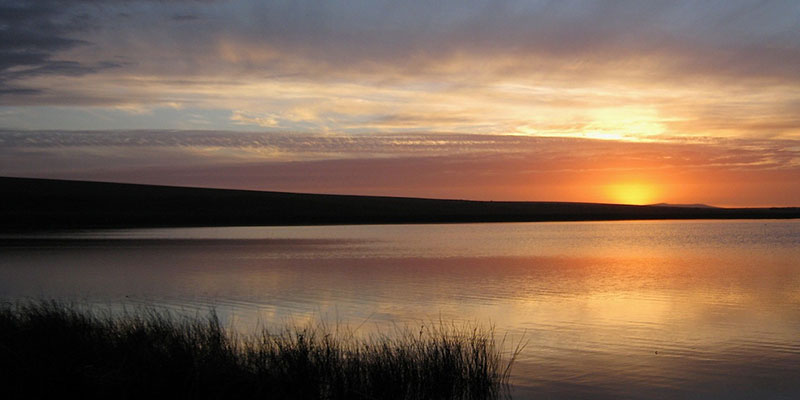

Come and hike on the Nuwejaars Wetlands
A new walking trail has been launched on the Nuwejaars Wetlands Special Management Area. The easy 4.2km African Marsh Harrier Trail starts at Zoetendal Vineyards close to the town of Elim, and leads you through the wetlands, over the Nuwejaars River, to a number of hidden-away birding spots. And you never know what you could see along this route, including the wonderful wetlands life, such as the miniature Micro Frog.
Conservation Highlights
Final gasp for 20-million year old fynbos fish
Freshwater fish in the Overberg are catching the attention of international conservationists – in an urgent effort to prevent these often tiny and very special fish species from going extinct.
Happy Marsh Harriers flock to rewilded wetlands
In healthy wetlands you’ll find a healthy array of insects. These insects make great food for a healthy population of frogs. And flying over these wetlands, birds of prey such as the African Marsh Harrier feed on the frogs.
New walking trail opens up the Nuwejaars Wetlands to all
A new walking trail has been launched on the Agulhas Plain – the first of its kind through the Nuwejaars Wetlands.
A snapshot into leopard dispersal in the Overberg
The incredible distances that leopards are secretly travelling across the Overberg, including through the Nuwejaars Wetlands
A wetlands recovery: A story told by Sprites, Skimmers & Scarlets
Dragonflies and damselflies are frustratingly fussy. Different Odonata species (the insect order for dragonflies and damselflies)
How to get a wetland working again
Once upon a time, not that long ago, one of the biggest wetland systems in South Africa was covered in wall-to-wall invasive alien plants. These wetlands were degraded, and were unable to support the wildlife or the communities that live here.
Every day we ...
Access our biodiversity
If we want to reach social and environmental sustainability, the Nuwejaars Wetland Special Management Area must achieve economic sustainability.
Teaching about nature
School outings are now being hosted to the Nuwejaars Wetlands SMA, where children can connect with this wondrous, intricate natural world.
Sustainable Agriculture
Traditionally private landowners in the Overberg have made their income from agricultural activities, like grain and livestock farming.




